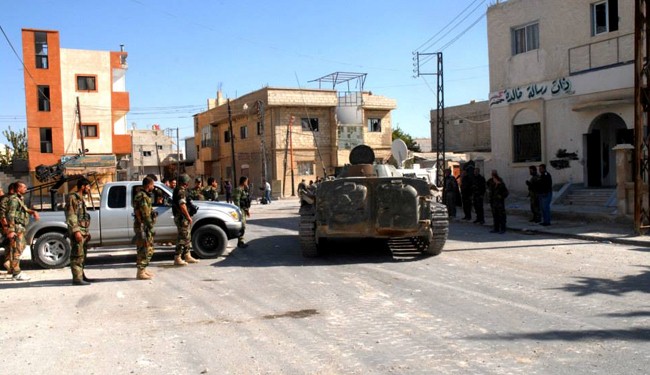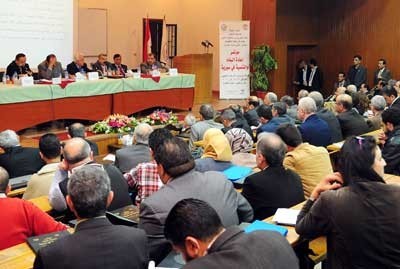Syrian Army in Control of 90% of Lebanon-Syria Border Area

 Syrian army’s gains against foreign-backed militant groups along Lebanon borders has left the insurgents with so little space to enter more forces and weapons through their Lebanon supply routes, a new report said.
Syrian army’s gains against foreign-backed militant groups along Lebanon borders has left the insurgents with so little space to enter more forces and weapons through their Lebanon supply routes, a new report said.
Head of the UK-based Syrian Observatory for Human Rights, Rami Abdul Rahman, has told the Saudi daily al-Sharq al-Owsat that with Hezbollah’s activities in securing the border, “they (the militants) are now facing difficulties moving forces (across the border)”, Al-Alam reported.
He said, increased security on the Syrian side of the border would lead to greater security in neighboring Lebanon, which has been adversely impacted by the three-year-long charged-war in Syria.
Retired Lebanese Army Brig. Gen. Amin Hoteit, an expert on Lebanese military and strategic affairs, told the paper, “Lebanon has now been separated from the Syrian crisis. This comes after the rebels withdrew from Qalamoun, and before this Al-Qusayr, Homs and Al-Zarah”.
Regaining Qusayr from the militants in May 2013, was Syrian army’s first major victory against the foreign-backed militants which used the town as their most important bastion for entering backup.
Hoteit says, some 90 percent of the approximately 365 kilometers of the common borders between Syria and Lebanon is now under the control of the Syrian army.
He added the Syrian army is seeking to create a “buffer zone” along the Lebanese border, securing its presence in the border area in order to “separate Lebanon from the Syrian crisis”.
Lebanon is linked to Syria via five legal crossings, along with approximately 18 illegal crossing points and 15 difficult-to-traverse tertiary crossing points, he said adding that with latest changes the militants are only able to cross mainly via three mountainous passageways that vehicles cannot navigate.
Syrian army has been fighting numerous multi-national militant groups for three years, each one of them with their own foreign-supporters.
Turkey which is an open supporter of war in Syria, has widely been criticized by the Syrian government for leaving its borders open to terrorist groups and foreign militants to enter Syria and join the insurgency.
Jordan’s common borders with Syria are another route for the militant groups, mostly used by CIA-backed militants who are trained in US training camps to come and fight against the Syrian army.
Improvements in blocking foreign supply routes have been considerable along Lebanon borders, with the help of Hezbollah resistance group which stepped in to help secure Lebanon form infiltrating terrorist groups.




